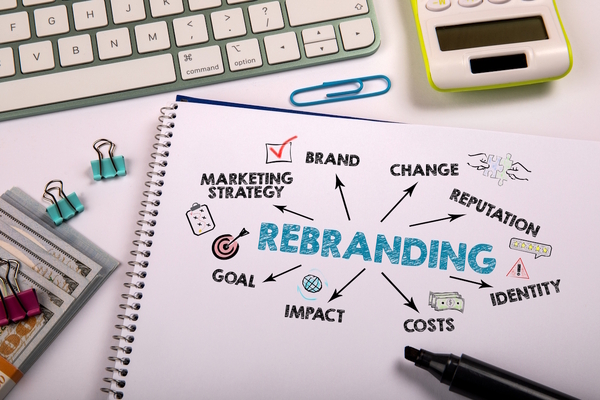How do we improve our soft skills?

Soft skills are diminishing across the workforce; Geraldine Kelm at Pinsent Masons Vario explains why they are so important in a professional services career
Have you ever asked yourself - are you ‘the personality hire’?
Comedy sketches on Tiktok championing employees who are the life and soul of the office, a calming presence and a problem-solver - #thepersonalityhire - have been going viral recently. These are the employees who are hired for the power and value their positive personalities bring to a company’s clients and relationships, as well as its internal culture - not just for the technical knowledge and qualifications they bring to their role.
This trend highlights how individuals with excellent soft skills play an integral role in the success of a business - but what are soft skills? In short, they are the abilities to work well with others, manage your time and tasks effectively, resolve conflicts and problem-solve, persuade and communicate clearly. Others include creativity, leadership, adaptability, critical thinking and decision-making.
Businesses should be championing soft skills, and for good reason. As early as 1918, Harvard University, the Carnegie Foundation and Stanford Research Center found that 85% of job success is the result of well-developed soft skills, and 15% through technical competencies (hard skills).
Studies since have found employees who have excellent soft skills help their employer’s bottom line. A study in 2017 by The University of Michigan, Boston College and Harvard University, found that soft skills training helped workers at a company boost their productivity by 12%, resulting in a 250% net return on investment for the employer.
There’s also a current concern that businesses are struggling with poor soft skills in their workplaces. Christopher Catoir, the global president of recruitment firm Adecco, recently said there was a ‘soft-skills crisis’ since the pandemic, with home working leaving millions of workers struggling with their interpersonal skills, particularly empathy and creativity.
Workers have thrived working remotely in a myriad of ways, but as we settle into the hybrid working norm with these concerns, businesses should look at how they’re nurturing their employees’ soft skills to bolster a positive working culture, employee retention and business productivity. This could be through investing in new platforms and training modules which apply to the virtual and physical work environments, which I’ll go on to talk through later in this piece.
And by now, if you’ve realised you are ‘the personality hire’, it’s about businesses recognising you for the positive impact you have, and utilising you more to encourage similar behaviours across teams.
How more emphasis is being placed on soft skills
Working in a sector such as professional services, where roles are very much client facing, we are well attuned to the need for good soft skills. A lawyer’s success depends on their people skills - being able to provide clear advice, as well as engage and reassure a concerned client, or persuade the other side to see a different perspective in a dispute.
Skills such as critical thinking, creativity and problem-solving are paramount to resolving legal issues, in collaboration with a lawyer’s knowledge and understanding of the law. These skills build trust between a client and their lawyer, which is essential for resolving or/and managing a legal matter.
We know that this human connection is a consistent reason why clients choose their lawyers, and we’re seeing that even with the increased use of technology in legal practice, clients still want that human touch. This is being seen across other sectors too who are investing more in AI – a 2022 report from Mitek and YouGov revealed that only half of UK bank customers felt technology such as AI and biometrics would enhance trust of banks. Another report by PwC found that an overwhelming majority of consumers wanted more human interaction, rather than less, with businesses.
In order for businesses to remain competitive, and differentiate themselves, they will need to invest time and resources into their employee’s emotional intelligence, as well as technology.
So how can businesses improve their employee’s soft skills?
Make it part of the recruitment process. In order to find the right individuals, we testeach candidate in our Flexible Services consultant recruitment process to measure their soft skills, built in conjunction with a business psychologist. Since we started Vario as a contract lawyering resource, we knew we needed lawyers who had strong emotional intelligence, even more so than the usual private practice and in-house lawyer. We need lawyers who are adaptable and socially confident to parachute into an in-house legal team and build trust, without an induction, and start producing value for the client from day one. It’s worth assessing job roles, and chatting with successful individuals at that level to understand what soft skills they use to perform their role, and going from there to outline what you need in a new recruit.
Offer emotional intelligence training, within inductions, and regularly for all professionals, and perhaps separate sessions for different levels of seniority. These could include a programme of ‘how to stay calm in stressful situations’, ‘how to communicate bad news’ with practical training sessions using mock scenarios. These could be designed for virtual communications with colleagues, and clients, as well as in-real life, to show how you need to adapt how you communicate and resolve issues.
The obvious team working days, mentoring schemes and firmwide networking meetings on a virtual and in real life basis can also be a helpful to develop teamworking, time management, creativity, communication, and problem-solving. It can also build a strong company culture virtually and in office.
Champion the value of personality hires by asking them to lead training sessions, provide mentoring, whilst also ensuring their appraisals are recognising their soft skills, and the positive impact it’s had for their team. This recognition will also support these individuals in continuing to spread a positive working culture, and also be a role model to others.
And for any professionals reading this:
Consider joining a club which interests you, i.e. a book club, a sports team, volunteering –where you will be need to meet new people, teamwork and be creative. Ask your senior managers for feedback on your soft skills, and tips on how to develop them, seek out books and talks.
There are also organisations which are designed to help you with soft skills – for example Toastmasters International that do virtual and in-person events in public speaking.
As we increasingly rely on advanced technology, businesses and professionals should look to prioritise these skills as clients and customers increasingly seek that human touch. Whilst hybrid working environments can provide challenges to improving professionals’ soft skills, there are so many ways we can still hone these to benefit working cultures and productivity.
Geraldine Kelm is Partner and Head of Account Management at Pinsent Masons Vario’s Flexible Services
Main image courtesy of iStockPhoto.com

Business Reporter Team
Most Viewed
23-29 Hendon Lane, London, N3 1RT
23-29 Hendon Lane, London, N3 1RT
020 8349 4363
© 2024, Lyonsdown Limited. Business Reporter® is a registered trademark of Lyonsdown Ltd. VAT registration number: 830519543
Join the Business Reporter community today and get access to all our newsletters, and our full library of talk show episodes
Join the Business Reporter community today and get access to all our newsletters, and our full library of talk show episodes





